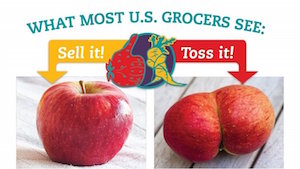The Good Samaritan Food Donation Act
You don't have to be worried about liability if you want to do the right thing and donate leftover food to charity. Be responsible, and know the law will be there to protect you. The text below is from FoodtoDonate.com
United States legal liability issues
The Federal Bill Emerson Good Samaritan Food Donation Act protects the donor and the recipient agency against liability, excepting only gross negligence and/or intentional misconduct. In addition, each state has passed Good Samaritan Laws that provide liability protection to good faith donors. Each of the Harvest Programs we coordinate have established procedures to ensure that safe food handling and storage is built into their donation program.
Federal Law: The Bill Emerson Good Samaritan Food Donation Act
In 1996, President Clinton signed into law The Bill Emerson Good Samaritan Food Donation Act.
Why the Emerson Act is important
Each year, 14 billion pounds of food are sent to landfills. Meanwhile, nearly 30 million Americans, including 12 million children, are at risk of hunger. Potential donors most often cite fear of liability as the reason they refuse to donate to feeding programs. Before passage of the national law, all 50 states and the District of Columbia had adopted laws protecting donors. Yet, differences in language and applicability between states often discouraged national and regional companies from donating. With the national law in place, regional and national donors have the uniform language that protects them from civil and criminal liability.
What does the law do?
The law protects good faith food donors from civil and criminal liability, should the product later cause harm to its recipient. The Emerson Act gives uniform federal protection to donors who may cross state lines.
Who is protected?
The law protects food donors, including individuals, and nonprofit feeding programs who act in good faith. While exceptions are made for gross negligence, the law states that test groups will not be subject to civil or criminal liability. More specifically, the law protects individuals, corporations, partnerships, organizations, associations, governmental entities, wholesalers, retailers, restaurateurs, caterers, farmers, gleaners, nonprofit agencies, and more.
What sort of food is protected?
The Emerson Act provides protection for food and grocery products that meet all quality and labeling standards imposed by federal, state and local laws and regulations even though the food may not be "readily marketable due to appearance, age, freshness, grade, size, surplus or other conditions."
How can I get a copy of the law?
The text of the Emerson Good Samaritan Food Donation Act can be viewed here.

